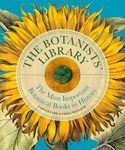Call us (08:30-17:00 UK)
01803 865913International
+44 1803 865913Need Help?
Help pagesWildlife Survey & Monitoring
Field Guides & Natural History
Academic & Professional Books
- Evolutionary Biology
- Evolution
- Human Evolution & Anthropology
- Cladistics, Phylogeny & Taxonomy
- View All
British Wildlife
British Wildlife is the leading natural history magazine in the UK, providing essential reading for both enthusiast and professional naturalists and wildlife conservationists. Published eight times a year, British Wildlife bridges the gap between popular writing and scientific literature through a combination of long-form articles, regular columns and reports, book reviews and letters.
Conservation Land Management
Conservation Land Management (CLM) is a quarterly magazine that is widely regarded as essential reading for all who are involved in land management for nature conservation, across the British Isles. CLM includes long-form articles, events listings, publication reviews, new product information and updates, reports of conferences and letters.






![Genèse d'une Découverte: La Division des Infusoires (1765-1766) [Genesis of a Discovery: The Division of Infusories (1765-1766)] Genèse d'une Découverte: La Division des Infusoires (1765-1766) [Genesis of a Discovery: The Division of Infusories (1765-1766)]](http://mediacdn.nhbs.com/jackets/jackets_resizer_xlarge/23/233514.jpg?height=620)
![Genèse d'une Découverte: La Division des Infusoires (1765-1766) [Genesis of a Discovery: The Division of Infusories (1765-1766)]](http://mediacdn.nhbs.com/jackets/jackets_resizer/23/233514.jpg)
![Genèse d'une Découverte: La Division des Infusoires (1765-1766) [Genesis of a Discovery: The Division of Infusories (1765-1766)]](http://mediacdn.nhbs.com/jackets/jackets_resizer/23/233514_1.jpg)
![Genèse d'une Découverte: La Division des Infusoires (1765-1766) [Genesis of a Discovery: The Division of Infusories (1765-1766)]](http://mediacdn.nhbs.com/jackets/jackets_resizer/23/233514_2.jpg)
![Genèse d'une Découverte: La Division des Infusoires (1765-1766) [Genesis of a Discovery: The Division of Infusories (1765-1766)]](http://mediacdn.nhbs.com/jackets/jackets_resizer/23/233514_3.jpg)
![Genèse d'une Découverte: La Division des Infusoires (1765-1766) [Genesis of a Discovery: The Division of Infusories (1765-1766)]](http://mediacdn.nhbs.com/jackets/jackets_resizer/23/233514_4.jpg)




![Auguste de Saint-Hilaire (1779-1853): Un Botaniste Français au Brésil / Um Botânico Francês no Brasil [A French Botanist in Brazil]](http://mediacdn.nhbs.com/jackets/jackets_resizer_medium/22/228866.jpg?height=150&width=104)





![Missions du Musée de l'Homme en Estonie: Boris Vildé et Léonide Zouroff au Setomaa (1937-1938) [Missions of the Musée de l'Homme in Estonia: Boris Vildé and Léonide Zouroff in Setomaa (1937-1938)]](http://mediacdn.nhbs.com/jackets/jackets_resizer_medium/23/236564.jpg?height=150&width=103)

![La République Naturaliste: Collection d'Histoire Naturelle & Révolution Française (1789-1804) [The Naturalist Republic: Natural History Collecting and the French Revolution (1789-1804)]](http://mediacdn.nhbs.com/jackets/jackets_resizer_medium/22/220175.jpg?height=150&width=119)
![Exposer l'Humanité: Race, Ethnologie et Empire en France (1850-1950) [Exhibiting Humanity: Race, Ethnology and Empire in France (1850-1950)]](http://mediacdn.nhbs.com/jackets/jackets_resizer_medium/22/226791.jpg?height=150&width=105)
![Genèse d'une Découverte: La Division des Infusoires (1765-1766) [Genesis of a Discovery: The Division of Infusories (1765-1766)]](http://mediacdn.nhbs.com/jackets/jackets_resizer_medium/23/233514.jpg?height=150&width=108)
![Les Années Folles de l'Ethnographie: Trocadéro 28-37 [The Roaring Twenties of Ethnography: Trocadero 28-37]](http://mediacdn.nhbs.com/jackets/jackets_resizer_medium/23/239722.jpg?height=150&width=103)















![Antoine-Laurent de Jussieu (1748-1836): Fabrique d'une Science Botanique [Production of Botanical Science]](http://mediacdn.nhbs.com/jackets/jackets_resizer_medium/25/259747.jpg?height=150&width=103)



![Flora of Cambodia, Laos and Vietnam, Volume 36 [Faune et Flore Tropicales, Volume 47]](http://mediacdn.nhbs.com/jackets/jackets_resizer_medium/24/245033.jpg?height=150&width=101)
![Les Chauves-Souris de Guyane [The Bats of French Guiana]](http://mediacdn.nhbs.com/jackets/jackets_resizer_medium/13/134247.jpg?height=150&width=100)
![Atlas des Mammifères Sauvages de France, Volume 3: Carnivores et Primates [Atlas of Wild Mammals of France, Volume 3: Carnivores and Primates]](http://mediacdn.nhbs.com/jackets/jackets_resizer_medium/26/263780.jpg?height=150&width=106)
